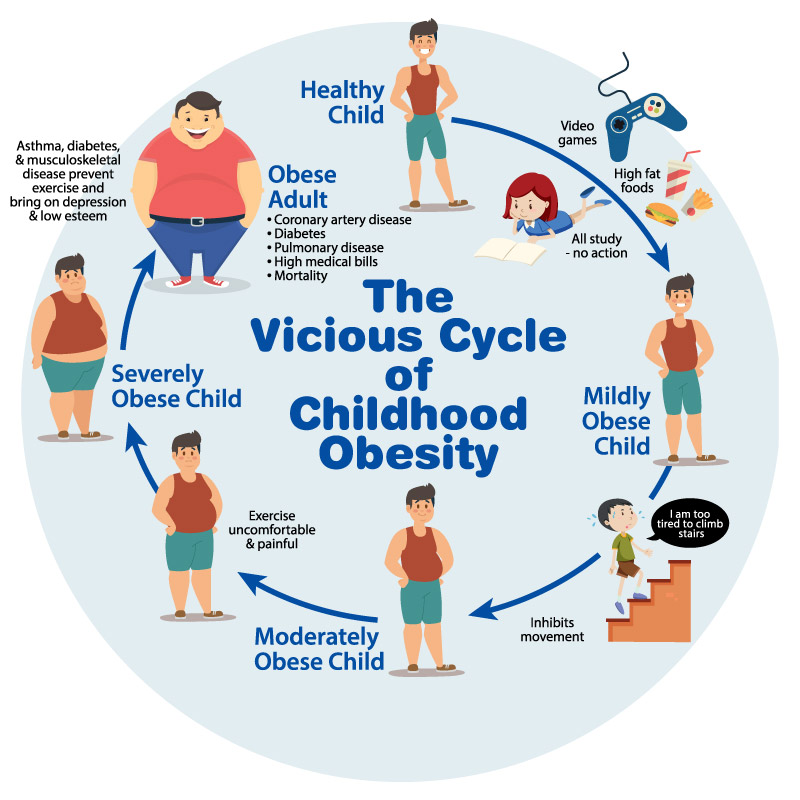
Childhood obesity is a growing concern worldwide. With an increasing number of children being overweight or obese, it is crucial to understand the causes and implement effective prevention strategies. This article explores the various factors contributing to childhood obesity and provides recommendations for prevention.
Causes of Childhood Obesity
Sedentary Lifestyle
The rise of sedentary activities such as watching television, playing video games, and spending excessive time on electronic devices has contributed significantly to childhood obesity. These activities promote a sedentary lifestyle, leading to reduced physical activity levels and increased calorie intake.
Poor Diet
Poor dietary habits, including the consumption of high-calorie processed foods and sugary beverages, play a significant role in childhood obesity. These foods are often lacking in essential nutrients while being loaded with unhealthy fats, sugar, and salt, which contribute to weight gain.
Genetic Factors
While genetic factors may influence a child’s weight to some extent, they are not solely responsible for childhood obesity. Genetic predispositions may make certain children more prone to weight gain, but environmental factors and lifestyle choices still play critical roles.
Environmental Factors
The environment in which children live can greatly impact their weight. Factors such as easy access to unhealthy food options, limited availability of healthy foods, and unhealthy food advertising can all contribute to poor eating habits and weight gain.
Psychological Factors
Psychological factors such as stress, depression, and low self-esteem can also contribute to childhood obesity. Emotional eating and using food as a coping mechanism can lead to unhealthy eating habits and weight gain.
Prevention Strategies
Promoting Healthy Eating Habits
Educating children and their families about the importance of a balanced diet is crucial in combating childhood obesity. Encouraging the consumption of fruits, vegetables, whole grains, and lean proteins while limiting the intake of processed foods and sugary drinks can help establish healthy eating habits.
Increasing Physical Activity
Engaging children in regular physical activity is vital for maintaining a healthy weight. Encouraging activities such as sports, bike riding, dancing, or simply playing outdoors can help children stay active and burn calories. Limiting sedentary behaviors by setting time restrictions on screen time is also beneficial.
Creating Supportive Environments
Communities, schools, and families all need to work together to create environments that promote healthy habits. This can involve implementing school programs that offer nutritious meals, increasing access to affordable fresh produce, and providing safe spaces for physical activity.
Addressing Psychological Factors
Recognizing and addressing psychological factors that contribute to childhood obesity is crucial. Offering support systems and resources for stress management, promoting positive body image, and developing healthy coping mechanisms can help children develop a healthy relationship with food.
Conclusion
Childhood obesity is a complex issue caused by a combination of factors. By understanding these causes and implementing effective prevention strategies, we can work towards reducing the prevalence of childhood obesity and ensuring a healthier future for our children.

